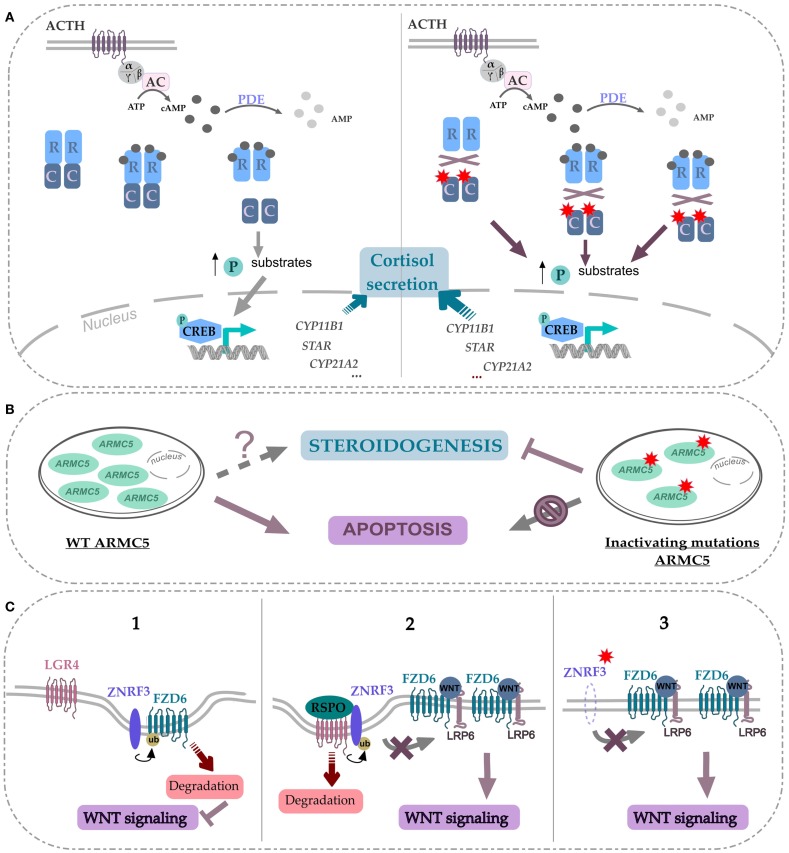Figure 2.
Effects of recently identified drivers in signaling pathways involved in adrenal tumorigenesis. (A) Alterations in the PKA pathway caused by PRKACAp.L206R and PRKACALeu199_Cys200insTrp mutations in adrenocortical adenomas. Under normal conditions, the catalytic and regulatory subunits of PKA form a heterotetramer. In response to ACTH stimulation, the catalytic subunits are released from the complex in an active form. The free catalytic subunits phosphorylate their substrates and thereby increase the transcription of target genes. These target genes are mainly involved in the synthesis of cortisol and other steroids. The p.L206R and Leu199_Cys200insTrp mutations in the PRKACA gene alter its interaction with regulatory subunits of PKA leading to constitutive activation of PKAcα and increased steroidogenesis. (B) ARMC5, a new indirect or direct regulator of steroidogenic and apoptosis processes. ARMC5 inactivating mutations induce a decreased steroidogenic capacity and a protection against cell death. (C) ZNRF3 a negative feedback regulator of the Wnt/β-catenin signaling pathway. 1, In the absence of R-spondin (RPSO), ZNRF3 induces the poly-ubiquitination of Frizzled receptors (FZD) that promote their degradation. 2, In the presence of RSPO, ZNRF3 interacts with the complex RSPO/LGR4, which results in the turnover of ZNRF3 and thus the stability of FZD and the stimulation of Wnt/β-catenin signaling. 3, In ACC, ZNRF3 alterations can produce similar effects of RSPO stimulation leading to an activation of Wnt/β-catenin signaling. Red stars represent mutated or altered proteins.

